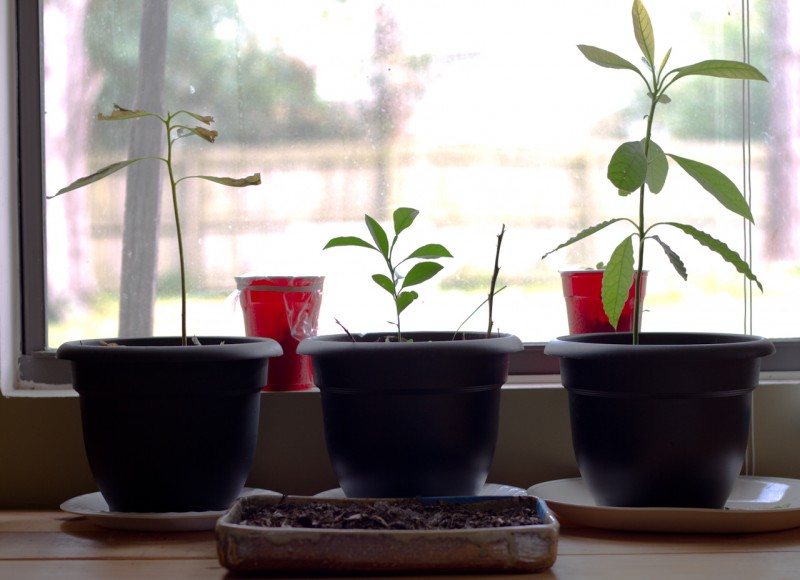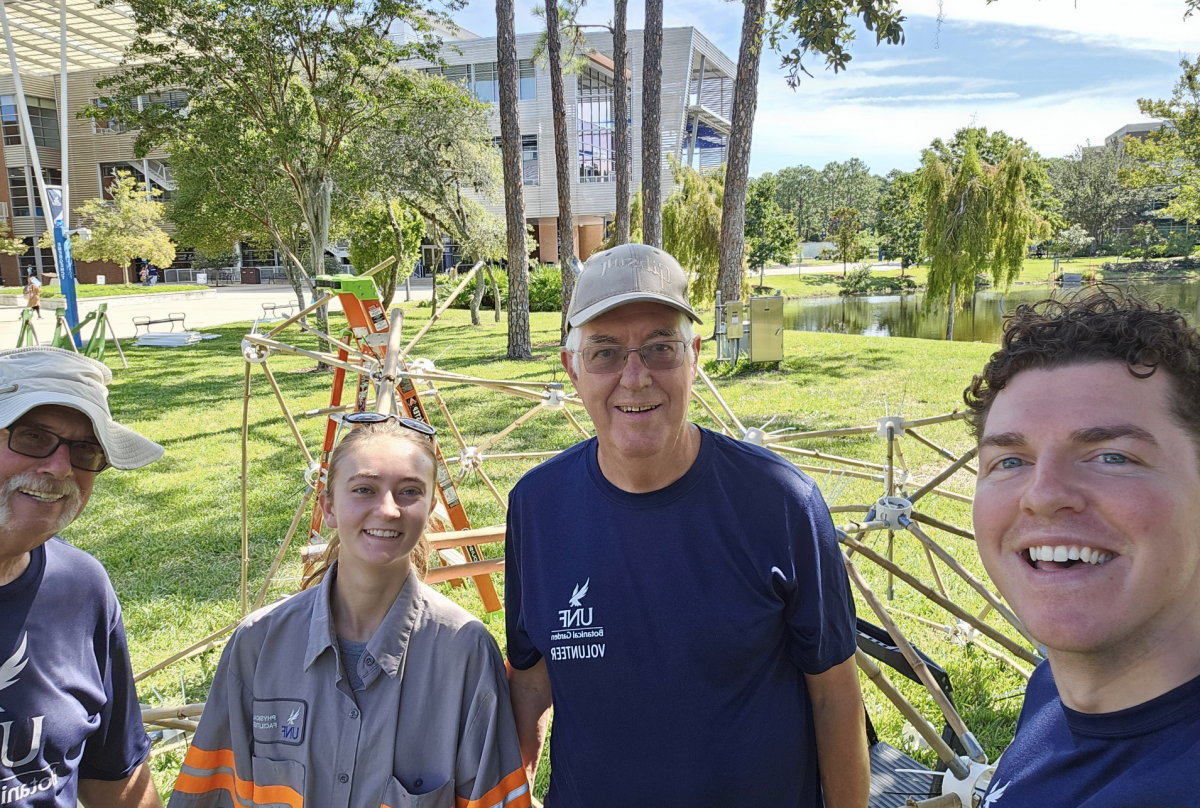
The produce on our supermarket shelves are rambling items of the road. They travel long distances, endure freight trains, chemical sprays, irradiation and inspection to get from the farm, to the grocery store, to our tables.
The need for such well traveled vegetables is far from necessary, as the trip can be much shorter with the use of a shovel and a handful of soil. Fresh fruits, vegetables, herbs and other produce can be picked from your yard or windowsill, or purchased from your local farmers market, saving your food from thousands of miles of travel.
The home gardening movement has picked up considerably as the “health food craze” continues and people crave more natural and local options. The number of farmers’ markets has seen steady growth, according to data from the U.S. Department of Agriculture. People of influence, like Michelle Obama, have even published books on home gardening and its benefits.
Some of those benefits are more than just cultural fad fodder and clever rhetoric. Carmen Franz, coordinator for the UNF Ogier Gardens, said fresh, seasonal food has a higher nutrient content because it is harvested at the proper time and gets to the kitchen table faster.
Franz noted a study by The University of California, Davis showing spinach and green beans lost two-thirds of their vitamin C a week after harvest.
Of course, if you want to reap the tasty benefits of growing your own food, you don’t need to immediately begin with big crops. Franz said to start simple and not get bogged down with the details.
She said herbs are always really easy, as are beans, tomatoes and peppers.
However, there is plenty to take into consideration before beginning, even if you are starting a small herb planter. Research is the first step in starting a garden.
There are a lot of great resources for advice on your horticultural journey. Franz recommends starting research with gardening guides and publications by universities with land grants such as UF, UC Davis or Georgia, to name a few.
Holt Knight, a psychology sophomore and frequent visitor of the Ogier Gardens, said he enjoys gardening and is considering starting a home garden with some simple herbs such as thyme and mint.
“It’s so useful,” he said. “You can make mint tea. You can put it in food. You can make mint rice.”
Knight said he finds herbs are a great place for beginners to start.
“If you research where you are, there are definitely going to be herbs that you can grow,” he said.
Along with the obvious benefits, there are also mental and spiritual benefits to gardening. Franz said it can be a good way to relieve stress.
“I don’t know how many times I had students hug me and thank me for giving them a chance to de-stress during exam weeks,” Franz said.
The therapeutic benefits are not just measured with hugs and handshakes. A 12 week study of Therapeutic Horticulture (TH) published in Issues in Mental Health Nursing found clinically depressed patients experienced significant declines in the severity of depression over the course of the study.
Green thumbs are not necessary for starting your own garden, but a green mind, fresh with ideas about how you can easily make a difference for your planet, community, personal health and taste buds, can fill a plate close to home so heads of lettuce don’t have to roam.
Email Jason Howard at reporter3@unfspinnaker.com
For small scale planter on a windowsill, porch etc:
SITE: A warm window facing west or south for at least 6 hours of sun exposure. If that’s a problem, research plants that are shade-tolerant.
PLAN: Gardening guides by land-grant universities, particularly UF for a Florida vegetable gardening guide.
SOIL: If you use bagged soil, you most likely will not have to worry about ph levels. Most plants like neutral levels but some plants, such as berries, like very acidic soil.
COMPOST: Composting can be done at home, and does not have to be smelly.
IRRIGATION/DRAINING: A watering can.
PEST MANAGEMENT: Pest control can be accomplished with home recipes. Grind up hot spicy peppers with garlic and onions in a blender into a spray to repel a lot of pests. You may have to wash off crops before eating/preparing. For soft bodied insects, use biodegradable soap spray.
PLANT HEALTH: Other than research, if you need help with plant diseases and problems, you can go to a farmers market — many of the vendors have a wealth of plant knowledge.
Source: Carmen Franz







